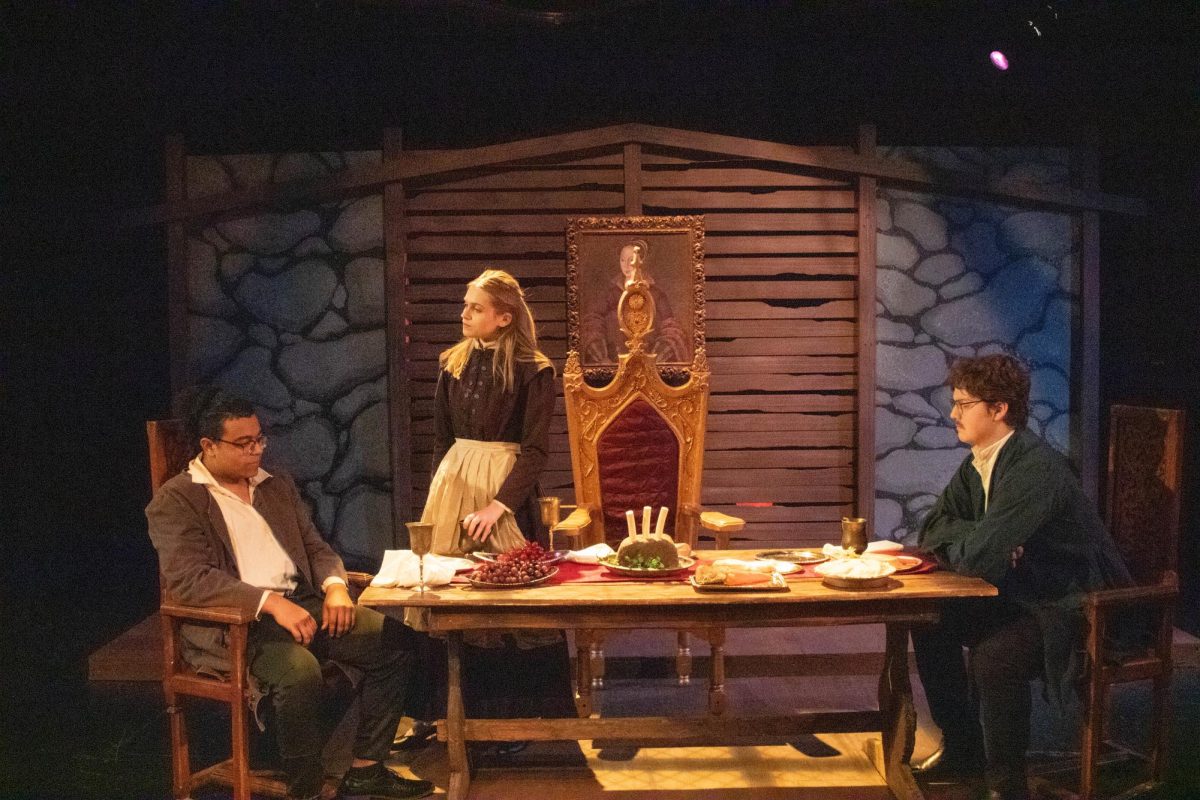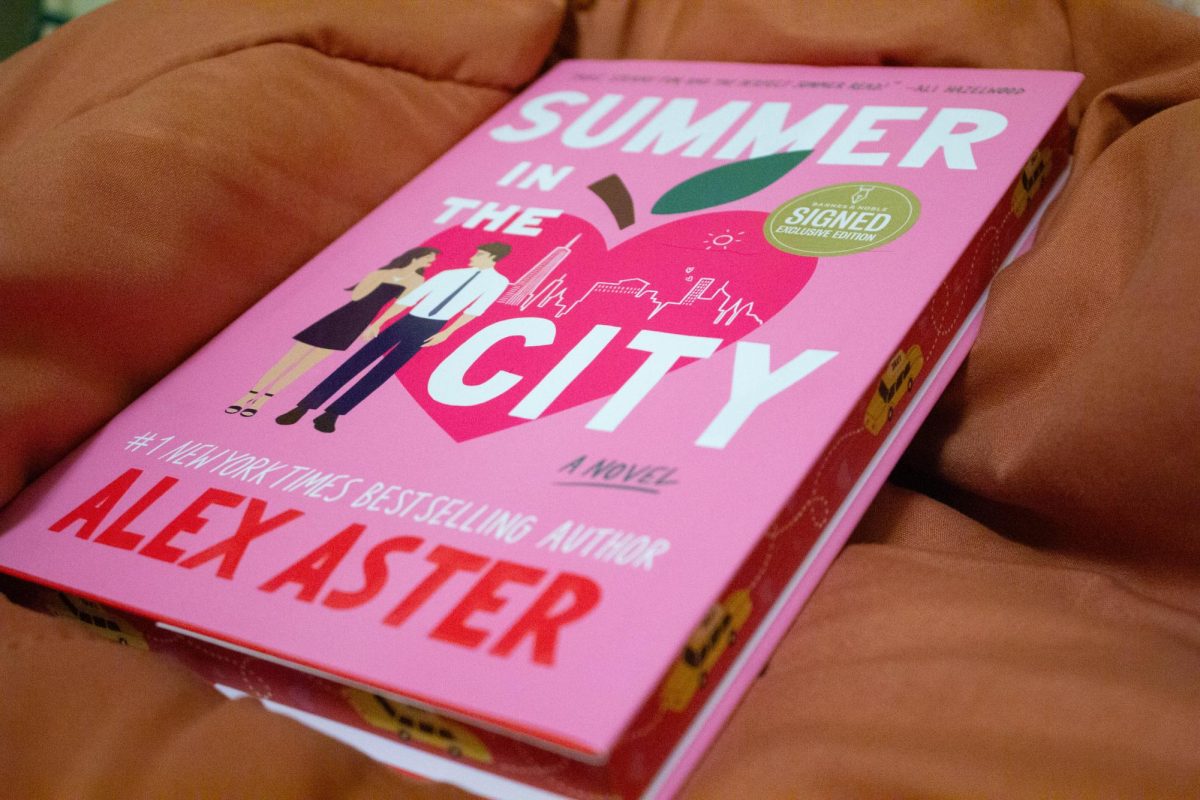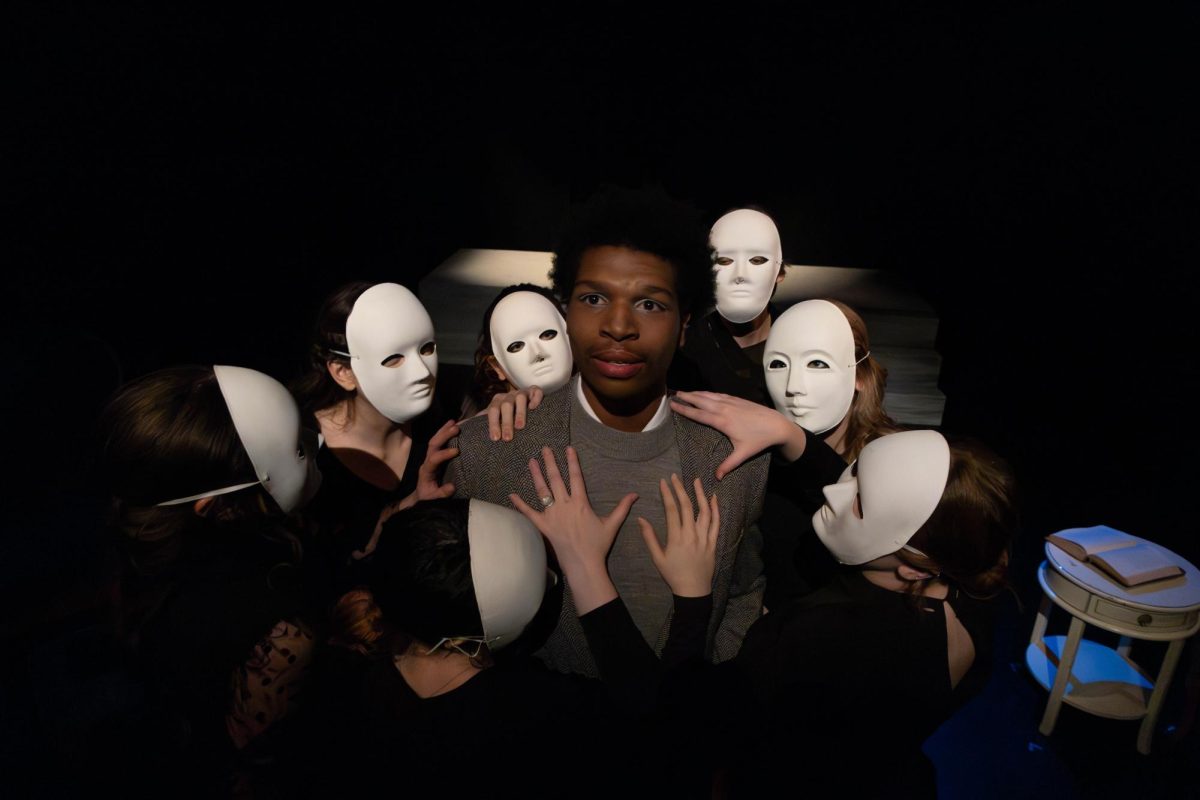On the third floor of the Pittsburgh Playhouse, Bridges Theatre Company put on “Witch,” a play that explores morality and humanity. This play served as a senior capstone for director Madeline Bedford, a senior theatre arts major with a passion for fight direction.
“Witch” is based on a 17th century play written by Jen Silverman about the witch of Edmonton, who was a real woman prosecuted and executed for “practicing witchcraft.”
“This is a modern riff off of that tale, where the devil comes to the English town of Edmonton and tries to talk the villagers there into selling him their soul,” Bedford said. “It’s all about what’s the weight of a soul and what do we lose when we get everything we’ve ever wanted?”
This play follows six characters with Scratch, played by Charlie Kennedy, being linked closely to most of the other characters. Scratch is the devilish character that comes knocking on everyone’s door causing them to reveal their true selves.
“One of my favorite things about Scratch as a character is that he becomes more grounded, more human, as the play goes on which is how he ends up connecting with Elizabeth and having that romantic relationship, whereas I would argue the opposite for Frank,” Bedford said.
Frank, played by Jaylan Gardner, serves to drive the theme of greed and ambition forward. He is a pivotal piece in the “Witch” puzzle with his involvement in the big schemes of the play.
“[Frank] almost gets more devilish in nature, sort of losing his sense of humanity and his connection with Winifred as he pursues this goal of becoming heir and gaining this fortune,” Bedford said. “We see the cost of ambition, as Scratch sacrifices his job and his ambition for Elizabeth, whereas, by accepting it, Frank loses Winifred.”
The plot surrounding Frank also highlights the queer integration in the play through his relationship with Cuddy, played by Ben Kucharski, the son of Sir Arthur.
Cuddy, as the previous heir, needs a wife and an heir of his own, but he finds that his interests deviate from the ‘norm’ and expectations put on him.
“The play itself and the subject matter lends itself to those themes of queerness, feminism and femininity, just because of how the witch trials went,” Bedford said. “Tying into the queer theme as well because of that expectation of what was normal and good in such a fanatically religious society.”
Elizabeth, played by Mia Hill, is where many of those feminism and femininity themes come to the forefront. Elizabeth is a strong female character that holds her morals close to her chest, disregarding what those around her gossip about when it comes to her, leading to an emotional connection with Scratch after denying him her soul.
On the flip side is Winifred, played by Emily Walker, a woman that is not the opposite of Elizabeth but someone who could be seen as the other side of the proverbial coin. Where Elizabeth is so against selling her soul and would rather endure all her hardships, Winifred is strong in a different way and is ready to sell her soul at the drop of a hat after an unfortunate circumstance, leading to the cascade of events that rounded out the play.
The behind-the-scenes work especially shines by the end of the play, such as the costume design and the set design. Both costume and set designers experienced their own set of obstacles during the production of this show.
“We go to a castle, we go to a peasant’s cottage, then there’s this bar at the top of the show,” scenic designer Stella Frazer said. “We just wanted to make sure that it was both compatible with all locations and honoring the time period, which is 1600s.”
The play was set on a low platform for easy prop movement, with a backdrop of wooden slabs that were littered with cracks to showcase the lighting design by Katie Gordy.
When it came to costume design, limitations in stock and material created a challenge. Despite that, costume designer Alaina Donovan displayed her attention-to-detail through the outfit designs of the cast.
“Mixing different elements within it, like figuring out what character would look best in which color and how the costumes would work with the actors and what they’re doing within the scene,” Donovan said. “So, finding that balance between period, but also practicality.”
Despite the challenges that were faced, they were overcome and resulted in a play that Bedford felt proud to call their senior capstone.
“I really love this play,” Bedford said. “This play feels like capturing lightning in a bottle. It’s so easy to relate to the characters and their feeling of hopelessness; it’s so easy to become lost in that belief that things are never going to get better and that things are always going to be the same. It is through the connection with our community and reaching out and leaning on the people who we support and who support us, that we can find the hope and we can find the joy and know that even if we’re not exactly sure when it’s going to happen, things will get better.”









